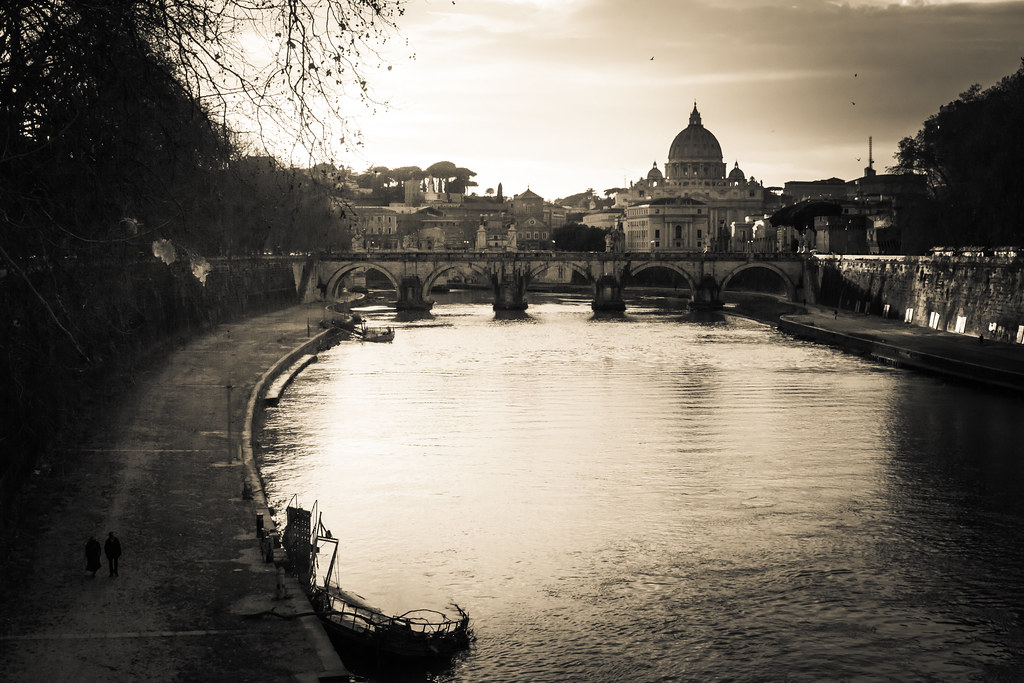It has been a while, but Father Pio Pace, our pseudonymous very influential insider in the Roman Curia, was at last able to send us a special comment on the new post-synodal Apostolic Exhortation of Pope Francis, Querida Amazonia.
***
Querida Amazonia: a document for a kind of "Lay Church"?
Father Pio Pace
Will married viri probati be ordained to the priesthood? This question was the focus of all the attention, before, during, and after the assembly of the Amazon Synod, and the bishops of the German 'Synodal Way' were mounting an ambush, getting ready to seize the issue to force the institutional transformation of the Church.
For all sorts of political and tactical reasons, the long-expected apostolic exhortation does not mention it. It does not reject the possibility (as it has been hastily claimed): it simply does not mention it. In fact, the exhortation goes much further, in the direction of a Laicized Church, in which the common priesthood of the baptized largely absorbs the priestly ministry, being mixed up with it.
Because this text, under a modest appearance, is actually very ambitious. One should read with great attention the beginning of the Exhortation: it is presented as a, "framework of reflection," which is an invitation to read the final document of the Synod (which speaks of priestly ordination of married deacons), but rises up to more fundamental, and certainly more radical, considerations. The central passage deals with the "Inculturation of ministry" (paragraphs 85-90), followed by thoughts on the communities (91-98), then on the role of women (99-103).
The main writer of the text (among the possibilities, it could be the astute Fr. Spadaro, the Jesuit director of La Civiltà Cattolica) proposes, in the name of the Pope, a laicized vision of the Church, fundamentally hostile to "clericalism", and that effectively surpasses, and eventually includes, the problematics of married priests within a much wider perspective.
Inculturation, says the writer, should also be expressed in the, "ecclesial organization and ministry." The priestly ministry should be rethought. It should not be reduced to the priest-cleric, whose specific power is that of Consecrating and of forgiving sins, which is indispensable to ensure, "a more frequent celebration of the Eucharist, even in the remotest and most isolated communities." On the other hand, the hierarchical power in the Church, which belongs to the priestly ministry, is not specific to the ordained minister: lay people, remaining lay people, will be able to exercise this other facet of the priestly ministry and to, "proclaim God’s word, teach, organize communities, celebrate certain sacraments, seek different ways to express popular devotion and develop the multitude of gifts that the Spirit pours out in their midst."True, the communities will still need the celebration of the Eucharist and the forgiveness of sins, because, "every effort should be made to ensure that the Amazonian peoples do not lack this food of new life and the sacrament of forgiveness." It is here, in paragraph 90, what appears (wrongly) like a cold shower for all progressive forces and a relief for the conservatives: the Pope, instead of speaking of the priestly ordination of married deacons, simply urges prayer for priestly vocations, all the while making clear that, "it is appropriate that the structure and content of both initial and ongoing priestly formation be thoroughly revised, so that priests can acquire the attitudes and abilities demanded by dialogue with Amazonian cultures."But, the document continues, more numerous permanent deacons are needed, as well as religious men and women and lay people who take over important responsibilities for the growth of the communities. It is necessary that these lay people, "perform those functions ever more effectively with the aid of a suitable accompaniment." Therefore, beyond the "narrow aim" of a greater presence of ordained ministers able to celebrate the Eucharist, this is about promoting "mature" laity who, while also being priestly (in the sense of the universal priesthood of the baptized) but remaining lay people, will lead the community. Those who are fixated upon the ordination of married men are, in sum, accused of clericalism, since it is much more important to promote a kind of Lay Church: "this requires the Church to be open to the Spirit’s boldness, to trust in, and concretely to permit, the growth of a specific ecclesial culture that is distinctively lay" (emphasized in the text).
Nothing seems to completely exclude, however, that among these fully "mature" laymen, it is considered useful to ordain a certain number for the needs of the Eucharist. But, as Élodie Blogie explained in the Belgian daily Le Soir of February 12, the Pope provided, "a very Jesuit response," and, on this question, "very astutely," says neither yes nor no: he says nothing, and in fact he says more.
And, in a similar way, he notes that women baptize, proclaim the word, are missionaries, and that they should exercise power. First, as lay women, with all their femininity. But, "to believe that women would be granted a greater status and participation in the Church only [emphasis added] if they were admitted to Holy Orders," would be a "reductionism." This, "would in fact narrow our vision," it, "would lead us to clericalize women."
On this point, anyway, we feel perhaps a more 'reactionary' side of the thinking of the Pope, who, while presenting the project of a recomposition (Amazonian, then German, etc) of the face of the Church from which clericalism would be eradicated, teaches a lesson to feminists, whom he can barely stand: it is not necessary to, "trap us in partial conceptions of power in the Church": women who take charge of the Church, and without whom the Church would collapse, ought to do it in feminine fashion.
